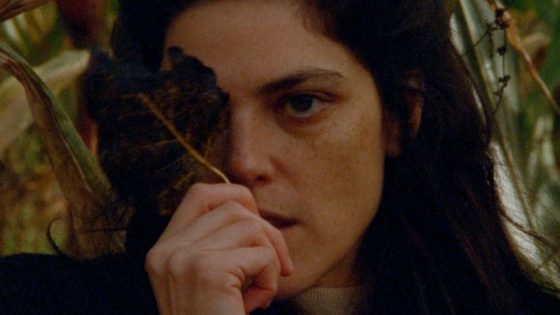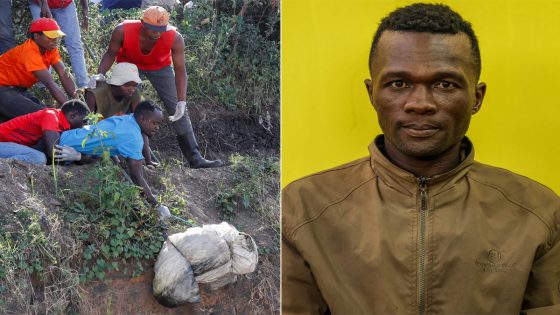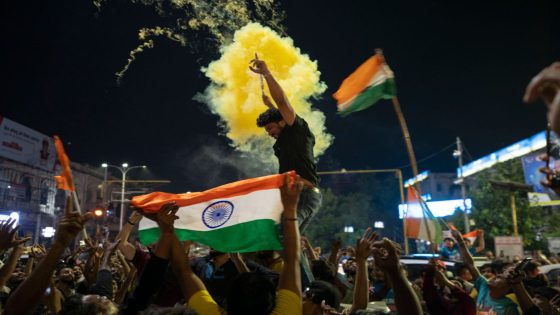After the death of her father, Carrie (Callie Hernandez), the protagonist of “Invention,” finds herself the beneficiary of a patent for an electromagnetic healing device—modeled after one Hernandez’s own late father possessed, a flashing cylinder of multicolored tubes emitting odd electrical noises, looking like something straight out of a sci-fi movie.
Los Angeles-based director Courtney Stephens, speaking with Variety about her Locarno-premiering film “Invention,” describes the machine as “the mystery at the center of the film.” Unsure of what to make of it—or of her father’s death—Carrie struggles to process the loss of a larger-than-life figure: a doctor turned “spiritual healer,” and a man whose trustworthiness was always in question.
On the surface, “Invention” explores the universal human experience of grieving a complicated loved one. What sets the film apart, however, is its innovative format. Competing in the Concorso Cineasti del Presente category at this year’s Locarno Film Festival, “Invention” is nominally classified as ‘fiction,’ yet it defies simple categorization. It could be seen as a blend of autobiography, documentary, and archival footage of Hernandez’s late father, offering much more than a traditional narrative.
This blurring of genres serves a higher purpose, causing the storyline itself to blur in its distinctions between fairytales, mythology and American idiom. It asks an important question: Ultimately, aren’t they all just really good conspiracy theories? This exploration is carried out in the most gentle and non-judgmental way possible.
As the filmmakers noted, “We met a lot of interesting people while making this film. The yarns of conspiracy—also, we both recognized that—there was a hopefulness in these, a hopefulness in storytelling. Conspiracies are just stories.”
Stephens describes “Invention” as a “diary of its own making.” Created during the writers’ strike and shortly after the COVID-19 pandemic, the film’s format reflects both the freedom with which the co-writer/producers wanted to explore the story and the external circumstances that shaped its production.
“We really found the film as we were making it,” Hernandez said when asked to describe the genre of the film. “We always knew we wanted to make a dead dads film, but we weren’t sure exactly what it would be.”
Along with cinematographer Rafael Palacio Illingworth and a handful of actors, Stephens and Hernandez embarked on a “shoestring” mission to demystify inscrutable emotional truths about unconventional modes of grieving and the house of cards that is the system of beliefs undergirding American life. Hernandez did her own sound micing, and cast members helped out with laundry, cooking, gaffing, or whatever tasks needed to be done.
“We were interested in the Grief Process, a little bit puncturing the idea that there’s this smooth, orderly way through these things,” Stephens elaborated on Carrie’s central emotional arc. “Grief is disappointing; it’s disorganized. You make it through because time passes, and you have no choice but to be changed.”
“We both entered into this film with a similar understanding that grief has its way with you and not the way around,” added Hernandez. “You’re a bit of a ragdoll.”
This empathetic ethos is fiercely reflected in Hernandez’s vulnerable lead performance. At first, Carrie faces the boring, uncomfortable bureaucracy of death and the unnerving zeal of her late father’s supporters like Babby (Lucy Kaminsky) with a “wooden” countenance. Although Carrie is initially guarded with these characters, it was important for Stephens and Hernandez to approach them with compassion. Even though the pair are investigating the sometimes bizarre world of medical conspiracy theory, they chose to focus on “the effect it has on people, more than a desire to condemn.”
Gradually, hopefulness begins to take root, and Carrie starts to understand why her father was a “true believer.” She begins to move beyond questioning whether the machine actually works. As the layers of the story peel away, the film shifts focus from the distractions we seek while grieving. “Believing in something can be a way of organizing your hopelessness,” Stephens said, eloquently summing up a certain hopefulness as we witness the decay of the American Dream post-Covid.
There is solace in the realization that, as Hernandez and Stephens put it, “Even the small interactions you have, which seem irrelevant in the grand, dramatic scope of grief, have their place—the banal, the magical, the dumb, the stupid, and the wonderful.”
Source Agencies



